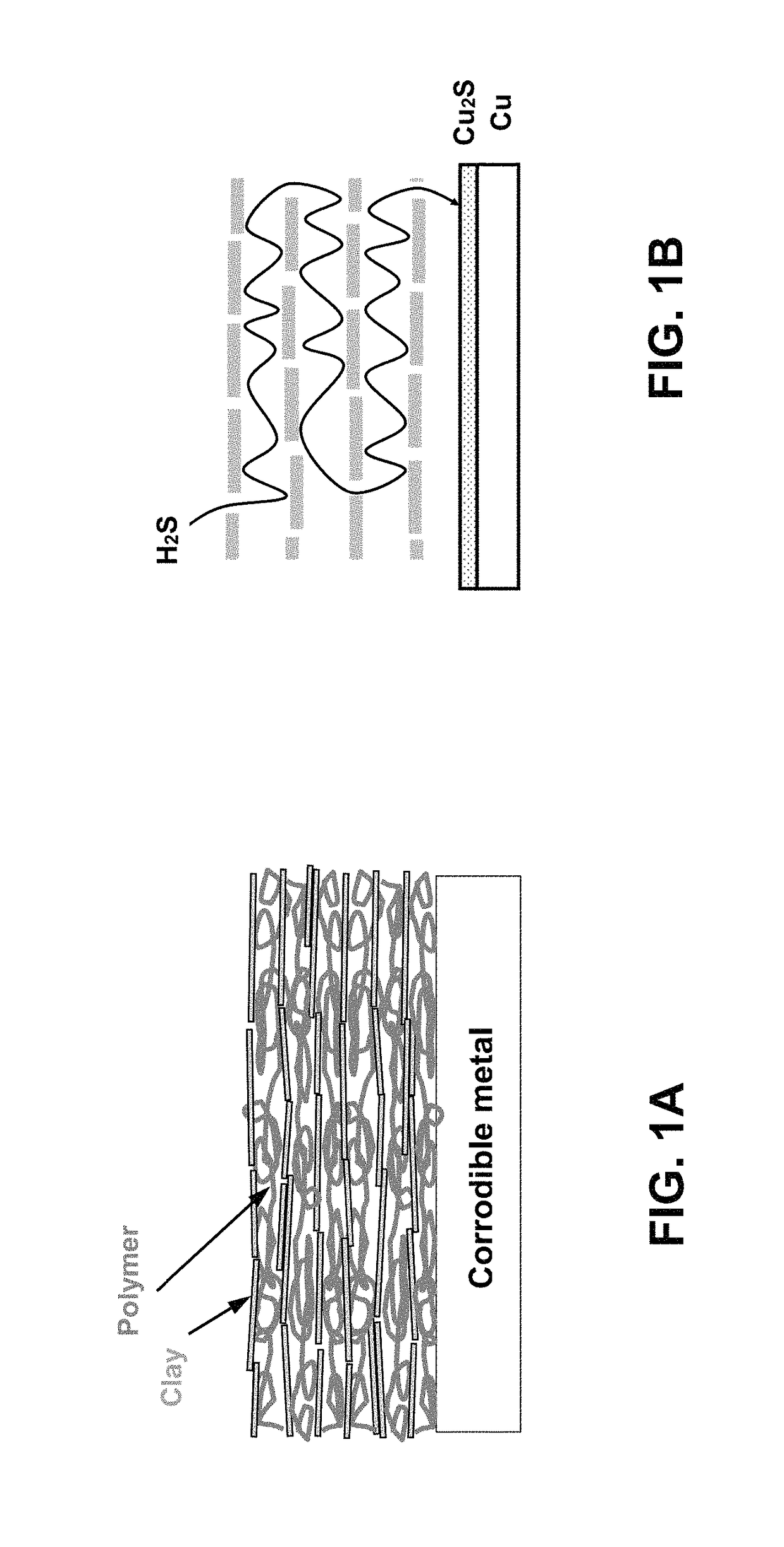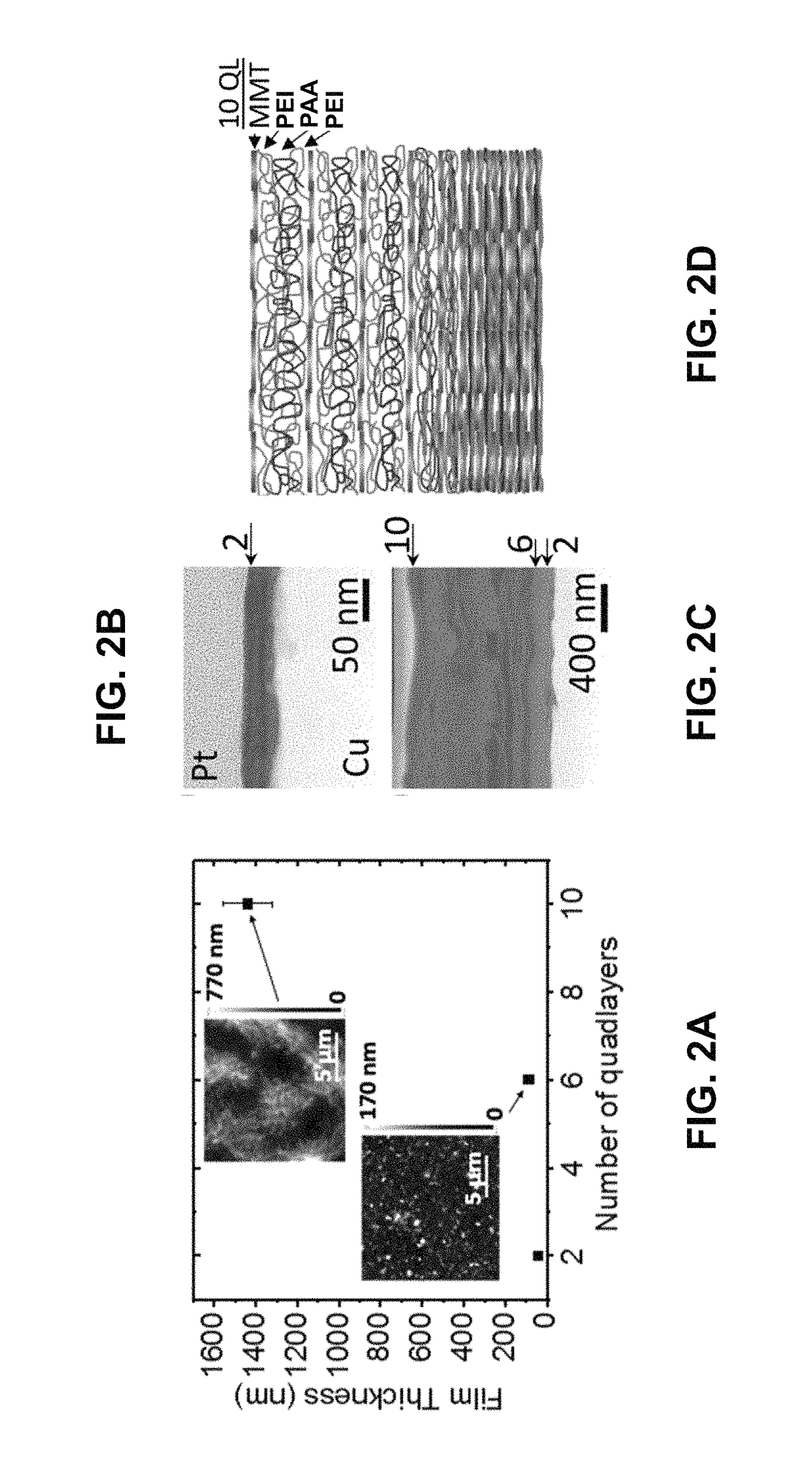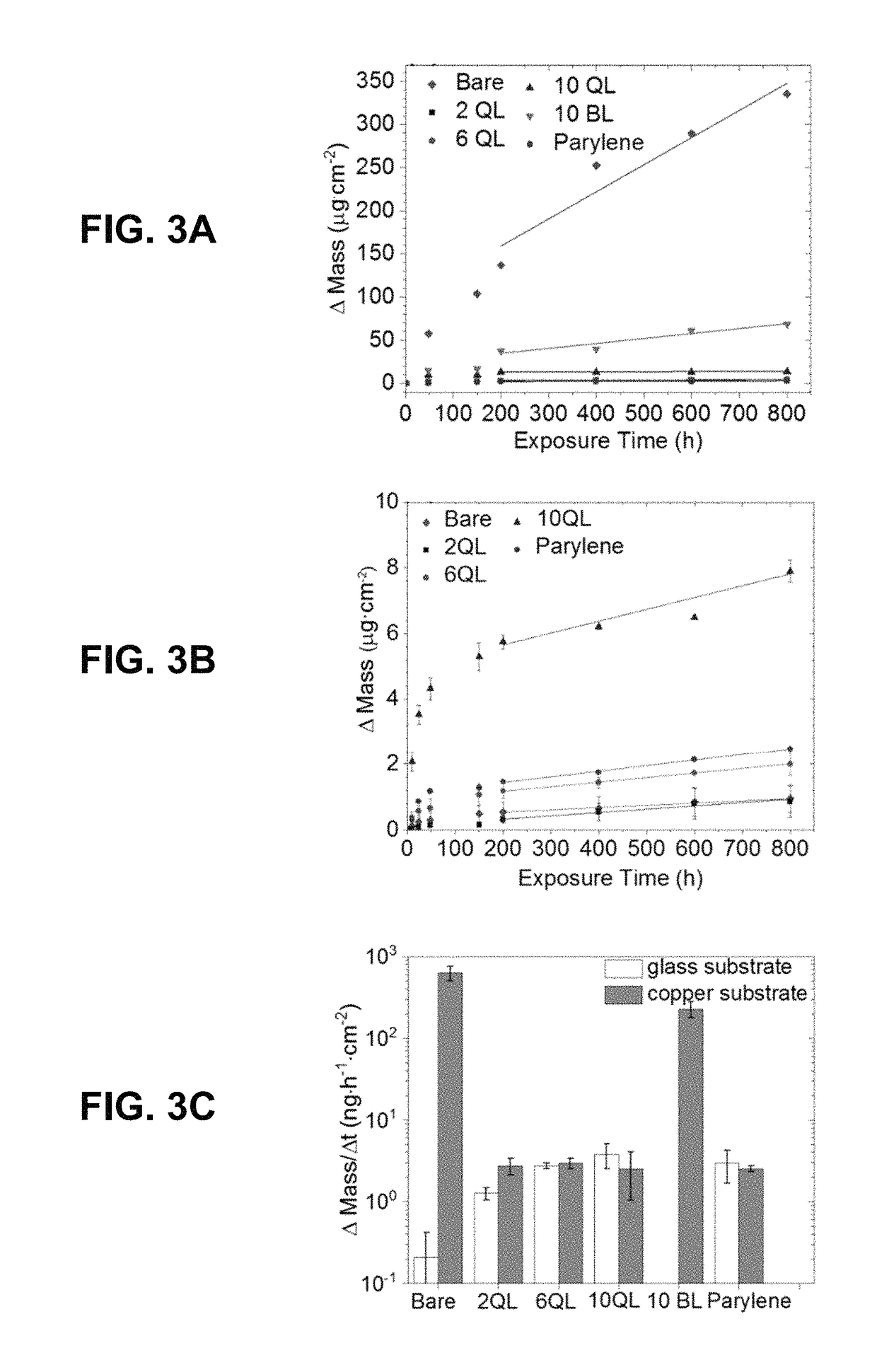Nanocomposite conformal corrosion barrier coating
a conformal corrosion and nanocomposite technology, applied in coatings, basic electric elements, semiconductor devices, etc., can solve the problems of increasing the cost of materials, so as to reduce the copper corrosion rate, improve the stability, and reduce the effect of copper corrosion ra
- Summary
- Abstract
- Description
- Claims
- Application Information
AI Technical Summary
Benefits of technology
Problems solved by technology
Method used
Image
Examples
Embodiment Construction
[0012]The corrosion protection technology of the present invention is based on thin films comprising multiple layers of inorganic platelets (i.e., a two-dimensional or lamella-type material), dispersed and oriented within a polyelectrolyte polymer matrix. For example, a polymer-clay nanocomposite (PCN) ordered thin film structure comprising alternating layers of highly aligned clay platelets (each ˜1 nm thick) and polyelectrolytes deposited on a normally corrodible metal substrate is schematically illustrated in FIG. 1A. This thin film structure can be assembled through the layer-by-layer (LbL) deposition of alternating molecular layers of charged polymer and oppositely charged exfoliated clay platelets (e.g., montmorillonite (MMT), vermiculite (VMT), or laponite) or other large aspect ratio inorganic platelet materials (e.g, alumina, graphene, graphene oxide, boron nitride, or layered double hydroxides, etc.)). The nanocomposite films can be produced by sequential spraying or dippi...
PUM
| Property | Measurement | Unit |
|---|---|---|
| thick | aaaaa | aaaaa |
| RH | aaaaa | aaaaa |
| thick | aaaaa | aaaaa |
Abstract
Description
Claims
Application Information
 Login to View More
Login to View More - R&D
- Intellectual Property
- Life Sciences
- Materials
- Tech Scout
- Unparalleled Data Quality
- Higher Quality Content
- 60% Fewer Hallucinations
Browse by: Latest US Patents, China's latest patents, Technical Efficacy Thesaurus, Application Domain, Technology Topic, Popular Technical Reports.
© 2025 PatSnap. All rights reserved.Legal|Privacy policy|Modern Slavery Act Transparency Statement|Sitemap|About US| Contact US: help@patsnap.com



